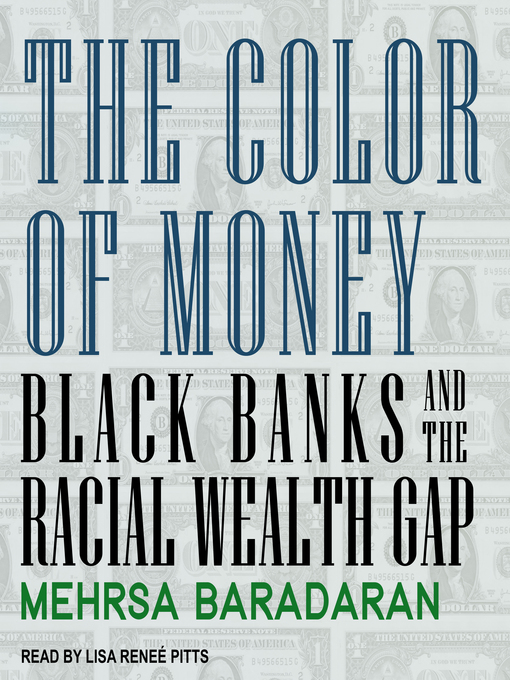- English
- Español
- Français (Canada)
- 中文(简体)
- 中文(繁體)
- Русский
The catch-22 of black banking is that the very institutions needed to help communities escape the deep poverty caused by discrimination and segregation inevitably became victims of that same poverty. Not only could black banks not "control the black dollar" due to the dynamics of bank depositing and lending but they drained black capital into white banks, leaving the black economy with the scraps.
Mehrsa Baradaran challenges the long-standing notion that black banking and community self-help is the solution to the racial wealth gap. These initiatives have functioned as a potent political decoy to avoid more fundamental reforms and racial redress. Examining the fruits of past policies and the operation of banking in a segregated economy, she makes clear that only bolder, more realistic views of banking's relation to black communities will end the cycle of poverty and promote black wealth.

